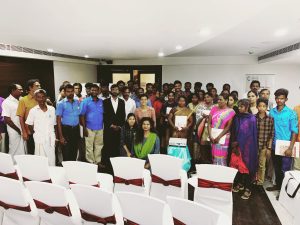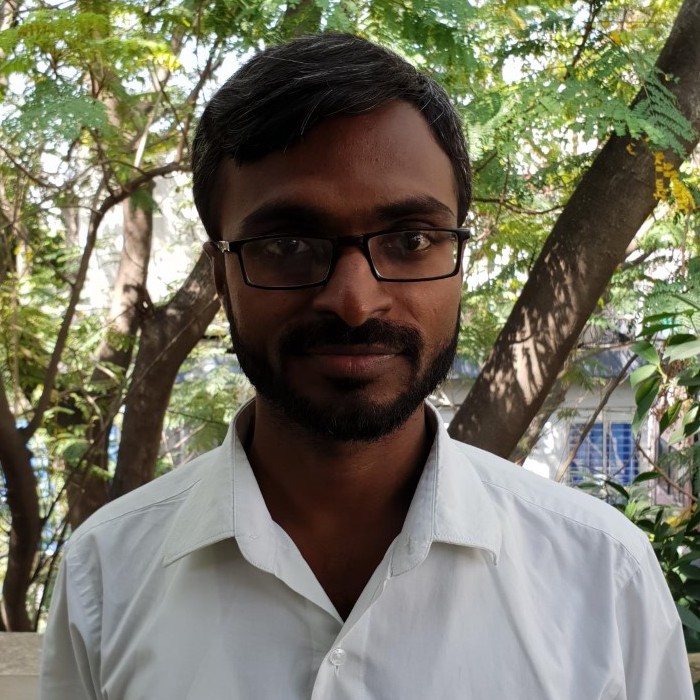
On 10th January, 2020, CLPR organised “Tackling Caste Discrimination Through the Law”, a training workshop for civil society organisations and activists working on issues of caste discrimination in various parts of Tamil Nadu. The objective behind the workshop was to increase the engagement of the CSOs and activists with these legislations – The Scheduled Castes and Scheduled Tribes (Prevention of Atrocities) Act, 1989, The Protection of Civil Rights Act, 1955, The Prohibition of Employment as Manual Scavengers and their Rehabilitation Act, 2013 and the Tamil Nadu Devadasis (Prohibition of Dedication) Act, 1947.
Through the workshop, we aimed to build the legal capacity of CSOs and activists to improve their familiarity with various provisions of existing caste discrimination laws, which will enable them to provide legal assistance in caste discrimination cases and act as barefoot lawyers. The broader goal behind these workshops is to build a network of CSOs and activists across South India. It will help in initiating contact between these CSOs and lawyers in the four States which will hep in improving the implementation of these laws.
Session I – The Scheduled Castes and the Scheduled Tribes (Prevention of Atrocities) Amendment Act, 2015 and The Protection of Civil Rights Act, 1955
This session was led by Mr. Vincent Raj Kathir who began by explaining the historical background behind enacting these laws and distinguished between two forms of discrimination faced by members of Scheduled Caste and Scheduled Tribe communities – atrocity and untouchability practices. Atrocity refers to the violence that is inflicted on SC & ST persons while untouchability practices relate to interpersonal relations and impede the free exercise of an individual’s civil rights. He pointed out that in Tamil Nadu around 400 types of untouchability practices are being practised against the Dalits despite the enactment of the Protection of Civil Rights Act, 1955. Although this law was enacted to protect the dignity of SC and ST persons, it is not being invoked by police authorities these days and very few cases are being filed in a year in Tamil Nadu.
While explaining the key provisions of the Scheduled Castes and the Scheduled Tribes (Prevention of Atrocities) Act, 1989, Mr. Kathir highlighted the different issues that CSOs should pay attention to such as timely filing of FIR, regular meetings of the district and State vigilance and monitoring committees, payment of compensation and delivery of various rehabilitation measures available in Tamil Nadu under the Model Contingency Plan. In particular, he stressed that CSOs and activists should focus on Section 4 of the Act which prescribes punishment for public servants who are negligent in performing their duties under the Act and advised them to use this provision in order to implement the law effectively.
Session II – The Prohibition of Employment as Manual Scavengers and their Rehabilitation Act 2013 and its implementation in Tamil Nadu
This session was conducted jointly by Mr. R. Karunanidhi, Advocate and Mr. C. Prabhu, Equality Fellow at CLPR. Mr. Karunanidhi briefly took the group through the various provisions of the law and pointed out that the Act has made employment of manual scavenger as an offence and provided rehabilitation of the manual scavengers and their families. He focused on the obligation of State and local authorities to conduct the surveys of manual scavengers and insanitary latrines and urged the group to advocate for the timely completion of these surveys.
Mr. C. Prabhu provided data on the implementation of the Act in Tamil Nadu and highlighted the patently false claims by the Government that all insanitary latrines in the State have been demolished. He further pointed out that State-wide surveys have not been conducted in Tamil Nadu, which also sees the highest number of deaths due to manual scavenging. For instance, in 2019 alone, 14 persons died while cleaning sewage/septic tanks in Tamil Nadu.
Session III- Tamil Nadu Devadasis (Prevention of Dedication) Act, 1947
Ms. Jayalakshmi, Equality Fellow at CLPR brought the attention of the group to the old but relevant legislation which prohibits the practice of the Devadasi system. She briefly summarised the key provisions of the law and pointed out that although the act was enacted way back in 1947, no rules have been framed yet. She closed the session by drawing the attention of the group to other legislations like the POCSO, PoA Act, Tamil Nadu Prohibition of Sexual Harassment of Women Act, which can also be effectively used against the Devadasi practice.
During the final session, the entire group reflected on the discussions during the day and identified important areas where intervention through litigation and advocacy is required to chart a plan for the implementation of the laws.
The PowerPoint presentations used by the speakers during the session are available under the Resources tab.

